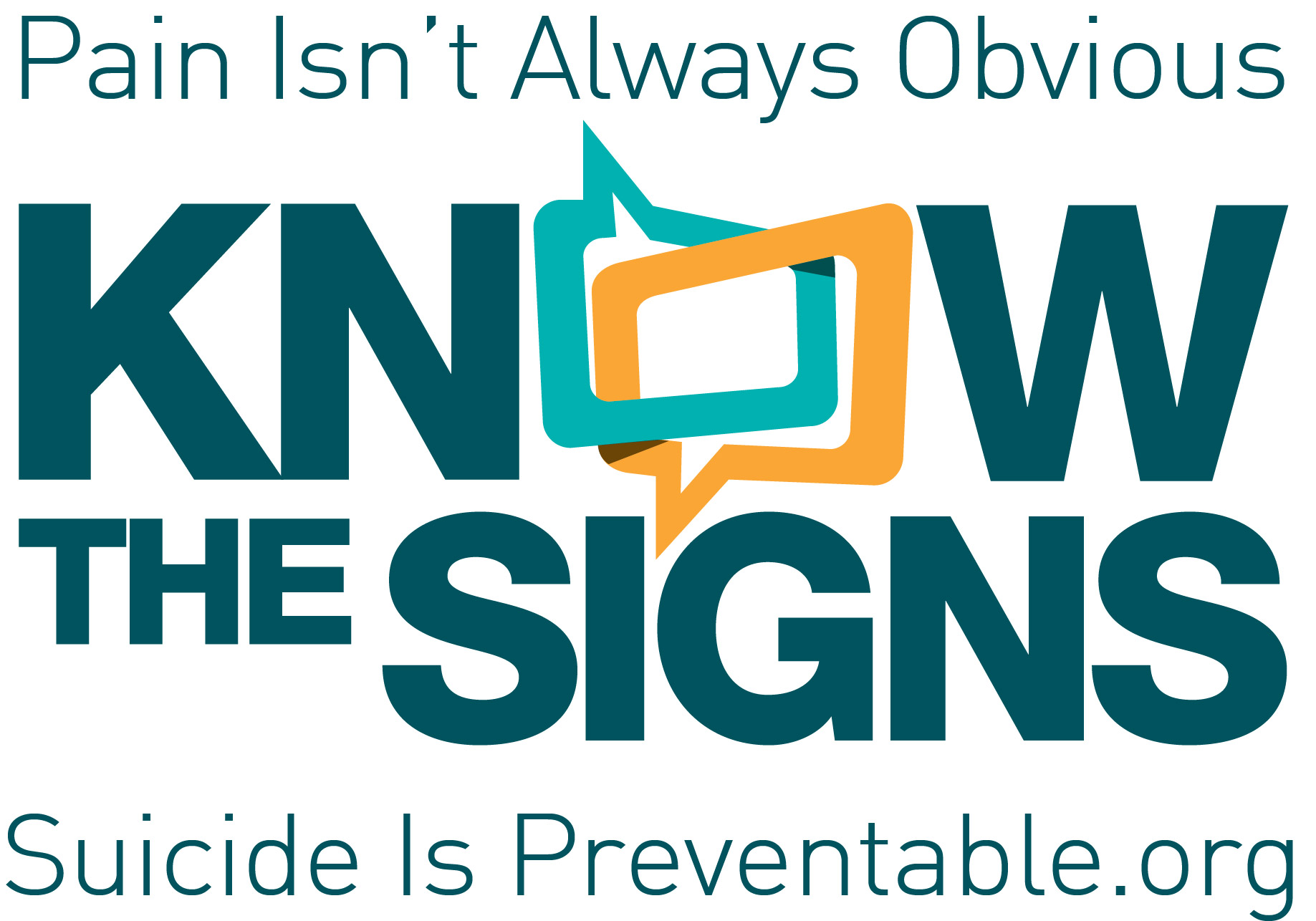Posted on February 28, 2013 by Cynthia Gunsinger

In early February, entrepreneur and Ecomom co-founder Jody Sherman died of a self-inflicted gunshot wound , rocking the tech and startup community.
Following his tragic death, many people in the tech community emphasized the need for more open dialogue about dealing with the extreme pressure of being a startup founder.
Acknowledging the complexity of the issue, we turned to our fellow life and business coaches asking them for their insights and strategies for how to deal with stress and extreme pressure.
Here’s what they have to offer:
1. View Pressure Differently

New perspectives can help ease these pressures. Pressure is a perception, not a fact. What can you do to delegate, systemize, or outsource? How do you know when you’ve done enough for the day? How do you know when you’ve had “enough” success? When you really go into the worst-case scenario and ask yourself what you would do if you “lost everything,” it’s not that big a deal – you’ve dealt with difficult situations before. When you know you can deal with anything that comes, you have no fear. No fear = no pressure. You keep doing what you’re doing and the outcome doesn’t mean anything about you. A project can be a failure. A person cannot, unless they decide to stop trying.
Response submitted by Coach Paul Strobl
2. Don’t Go it Alone

For many, there is a sense of having to do it alone and there isn’t someone with whom they can talk objectively about all the issues of running a business. The founder faces the full weight and responsibility of getting the business to be successful – that means marketing, sales, product development, and producing results – and it can be overwhelming.
One of the solutions is to work with a coach or find a mentor to develop plans to help reduce the stress of managing a business.
The idea is not to go it alone. It means finding someone to provide some positive support, encouragement, and a dose of validation so the founder doesn’t feel overwhelmed.
Response submitted by Coach Dan Weigold
3. Take Renewal Breaks

Disengaging from your day-to-day consistently – whether throughout the day, week, month, quarter, or year – is key. Don’t fall into a God complex that it’s all about you and your business. Trust in the process that is bigger than you. Be patient. Rely on a supportive and loving peer group. Instead of viewing failures or losses as definitive, be grateful for what they teach you. Meditation, spirituality, family time, and a sound business strategy that avoids overcommitment all help create balance.
Response submitted by Coach Sean D. Stewart
4. Check Your Self (Esteem)

We all choose the path that suits our purpose. Pressure from external sources is immaterial to our well-being. Expectations of greatness are our own internal pressure. Shooting for greatness and accepting setbacks is the mindset that offsets internal conflict. Always do your best while realizing that risking everything is the only way to be successful. One does not have to put their self-esteem on the line when pursuing greatness. If self-esteem equals success, then one will never be happy. When you can view success and failure equally – because self-esteem is nonnegotiable – then “projects” or “founders” become mere aspects of life.
Response submitted by Coach Steven Chervony
5. Say Thank You

Shift focus away from what isn’t working to what you are grateful for (what is working). Three simple ways:
1. At night, instead of counting sheep, count blessings. It takes attention away from work thoughts and prepares your mind for a peaceful, happy sleep.
2. Write a daily gratitude journal to remember all the positive things that happened throughout the day.
3. Use social media to share the things you are most grateful for – it inspires others to do the same!
Response submitted by Coach Patricia Reynolds-Meade
6. Build Wellness In

Simple yet important practices to consider: proper sleep, healthy food, exercise, deep breathing, and recognizing your connection to everything. Stay connected to humor and other people, and do not judge yourself harshly or strive for perfection.
Response submitted by Coach Risa Kelley
7. Draw Lines: Boundaries and Balance

Consciously reshape the people, situations, and things that drain your energy. Understand that you don’t have to react to everything thrown your way or adhere strictly to others’ timelines. If we take life too seriously, we will implode! As coaches, we must follow our own advice and live a balanced life surrounded by like-minded people.
Set boundaries around friends and family who seem intent on draining your energy and pulling you into a negative lifestyle. That, good folks, is the most important of all!
Response submitted by Coach Tanya Ragbeer
8. Get Serious About Support

Founders cannot operate as lone wolves. They need to build a team that not only functions for their companies but also serves as their personal community when times get tough.
Founders may be visionary and inventive, yet following through often requires skills they do not possess. The role demands an always-resourceful attitude—a difficult state to maintain amid setbacks.
Founders can’t do it alone. Support must come from a community they build, not simply from a paid coach.
Response submitted by Coach Cougar Brenneman
9. Fill Yourself Up
There isn’t one technique that fits all. It’s a lifestyle that helps you manage sustained, extreme pressure. Remember, you are no good to your organization, family, friends, or yourself if you run on empty.
What is it that fills your tank? For everyone this will be different. For some, it may be listening to a good book; for others, time with family—or even a brief daydream. Whatever it is for you, make sure it’s something you do regularly (daily if possible, or at least weekly). Don’t tell yourself you’ll take care of yourself “one day” because we all know that day rarely comes. Do it now—make it small but frequent. Make yourself a priority every day and you will achieve great things.
Response submitted by Coach David Garcia
10. Ask For Help
Throughout our careers, many of us learn to cope with multiple stressors and wear them as a badge of honor. Soon, we are dealing with more than any one human being should. Instead of admitting even a slight unease or discomfort, we try to preserve our superhuman image.
As a leader, I serve better when I actively care for my health and happiness. It also sets a powerful example to my team: asking for help is a sign of intelligence and strength.
Response submitted by Coach Shenita Sanders
11. Know Thyself
First, you must fully understand yourself. Without knowing how pressure affects you, you can never comprehend the true impact it may have. Are these pressures life-and-death decisions? They might seem so, but in truth, they’re just decisions. Equally important is having an outlet—a place or activity that relieves the pressure. Many use a gym for this purpose, but it could be as simple as building a model. Something, anything, that forces you to concentrate on something other than the pressures you impose on yourself.
Response submitted by Coach Matt Creelman
12. Shake It Off
Balance is key. The business can consume you and “eat you up.” Get away—even for an hour—to allow your brain to focus on something other than the ever-present start-up pressures. It’s tough, but absolutely necessary.
Response submitted by Coach Paul
13. Think Like a Top Athlete

To manage pressure, you must delve deep and practice healthy habits consistently. Professional athletes use behavioral techniques to remain relaxed under extreme pressure. We just watched the Super Bowl—were those athletes stressed? They have layers of support: coaches, financial backing, friends, and family. They also have reproducible systems for relaxation and know when to take a break.
Response submitted by Coach Toby Jensen
14. Hire a Coach!
Hire a professional coach—someone who can listen, help you develop perspective, and emphasize the importance of life balance. Interview potential coaches carefully and plan on keeping that relationship through at least the early growth phases of your business.
Meet regularly! I have met with some startup CEOs two to three times a week during the early months, then tapered off to every two weeks. Honor the coaching relationship—your coach is there for you and only you. Through thick and thin, you have someone who will not judge you but will support you every step of the way.

Source: noomii.com via Noomii.com on Pinterest
Response submitted by Coach Stephen Clarke
15. Recharge Your Batteries

We all know that replenishing our energy levels is vital—whether through regular exercise, a theatre visit, or even fixing cars. Whatever recharges you should be a non-negotiable part of your week. The harder we push ourselves, the deeper we need to go. Listen to what your soul tells you in those quiet moments.
Do the quiet moments leave you content or empty? Deep contentment is a clear sign that your life aligns with your values. Emptiness, on the other hand, suggests that a core value is being ignored—signaling that adjustments are needed. A key part of my coaching is helping clients distill and live by their values. Once clarity is achieved, goals become easier and joy naturally follows.
Response submitted by Coach Gil Davidson
16. Focus on Why
Identify the BIG vision: What do you want to bring into existence? Stay focused on the WHY and create an aligned plan that supports that desired outcome. Define your priorities, minimize distractions, and stick to your plan. Ask for help when needed, identify resources, and delegate. Create a 30‑day plan and break it down into weekly and daily action steps.
Response submitted by Coach Elsbeth Tate
17. Mind Like Water
“Mind like water” is a concept drawn from ancient martial arts practices—and it is the cornerstone of works like David Allen’s Getting Things Done. Like water, strive not to overreact or underreact to stimuli.
While few situations are as extreme as combat, where every reaction can mean life or death, adopting a “mind like water” isn’t about merely coping with pressure—it’s about flourishing in spite of it.
Response submitted by Coach Aaryn
18. Cultivate a Happy Ecosystem

Create a sustainable partnership between your body, mind, and spirit. What is the point of all your hard work if you don’t find joy in your daily life? Listen to your body, your spirit, and your mind—they’re all interconnected.
Blend intrinsic and extrinsic values for yourself and those who work with you. Are you expanding as a visionary leader while also developing the right product and processes to generate profit?
Response submitted by Coach Pegotty Cooper
19. Trust Your People
A strong support system is key—it offers advantages ranging from brainstorming solutions to stress relief through exercise, laughter, hugs, or even a good cry.
Response submitted by Coach Lynette Vetsch
20. Book You-Time

Founders have passion, drive, creativity, and vision. To manage the extreme pressure of entrepreneurship, find balance by seeking an outlet outside of work. Determine what rejuvenates you—whether it’s a hobby, time with loved ones, or quiet reflection—and schedule it in your calendar. For example, create a recurring appointment for yourself.
Response submitted by Coach Stephanie Pearce
21. Build a Strong Foundation
Anyone who intends to found an organization must know themselves deeply and completely. Why? Because true strength and ability lie within! The first technique for managing sustained, extreme pressure is knowing your purpose and having passion for what you do.
If you get caught up in founding an organization merely because it “should” be done, neglect your well-being, blur the boundaries between work and life, or tie your self-worth solely to your role as founder, then the pressure will be too great to manage. We are not our work—we work because of who we are.
Response submitted by Coach Stanlee Panelle
22. Entrepreneurship is a Full-Contact Sport
We live in times of extreme stress. Whether you’re a founder, developer, entrepreneur, or in any profession, daily pressures abound—and sometimes they are very extreme!
To perform at your best, you need periods of rest, proper nutrition, play, reflection, hydration, work, socializing, and laughter.
Response submitted by Coach Pauline Haynes
23. Invest in Stress Reduction Structures
I coach clients who experience high levels of work stress. Though stress is never beneficial, there are ways to make your body and mind more resilient. An entrepreneur with perfectionistic tendencies who cannot delegate will suffer more than one who can. Recently, a client dealing with financial uncertainty sought advice on managing both business stress and securing digital assets, particularly a bitcoin wallet, to protect their investments. Recognize what is within your control and let go of what isn’t—like the economy. Cultivate a positive, grateful attitude. Create an environment where your employees thrive; this goodwill will return to you many times over. Good communication skills are essential both for creating that environment and for dealing with customers.
Get support from family, friends, and even pets. Even the most driven entrepreneur needs downtime with those who care about them. Soak in the good feelings, laugh, and avoid people who drain your energy—you simply can’t afford it.
Response submitted by Coach Lynn Chapman
24. Turn Off the Pressure Cooker
At times, you need to “get out” of the pressure. Others must be trusted to step in and take on the burden—even temporarily. If that can’t happen, then the system is broken, and people may end up hurt or even dying.
Systems and behaviors that require constant high pressure are unsustainable. Short-term gains at the expense of long-term well-being simply aren’t acceptable.
Response submitted by Coach Ed Britton
25. Know the Signs. Find the Words

We are now seeing billboards and public service announcements targeting suicide prevention across all ages and genders—especially men.
How do we provide information to help prevent these tragedies? A new campaign entitled Know the Signs; Know the Signs, Find the Words, Reach Out (www.suicideispreventable.org) breaks down the process into three parts to help you intervene at any stage.
While the media often celebrates success as defined by flashy symbols of power and wealth, a coach can help you identify your own markers of success—intangibles such as risk-taking, creativity, fearlessness, and balance. If you feel overwhelmed or stressed about work, social life, or family, please reach out for help. There is strength in numbers. Even though we may not have simple answers regarding suicide, talking about it and seeking support (formal or informal) will reduce the risk for you and others.
Response submitted by Coaches Kim Fuller & Terri Morgan
26. Life Will Go On

Keep chaotic thoughts at bay and recognize that no matter how much is at stake or how things turn out, life goes on—and the pain will not last forever. When we let negative thoughts take over, it may seem that the pain will never end and that joy, love, or pleasure are unattainable. These feelings are understandable, especially after great loss or trauma, but remember: life goes on. We can choose to go with it, against it, or even step away entirely—but life continues regardless.
It’s easy to believe that the way we are is fixed, but the truth is that at any moment we can change our thoughts, emotions, and actions. When depression creeps in, the fastest, most effective remedy is to do something that brings you joy—even if you have to force a smile.
Response submitted by Coach Amanda Carter
27. Apply the Formula
1 – Seek help (maybe hire a coach)
2 – Voice your concerns
3 – Address priorities
4 – Sketch scenarios from best to worst case
5 – Develop solutions and identify what to delegate
6 – Check your physical and mental health with a specialist
7 – Repeat steps 1–6 periodically
Response submitted by Coach Rania Hammoud
28. Kick the Perfectionism Habit
1. Plan carefully – set one major goal, then break it into manageable steps that allow for learning along the way.
2. Build and maintain a network of support among family and friends. Growth requires change, and change in one person often demands change among those closest to them.
3. Replace perfectionism and the need for control with a pursuit of excellence and a willingness to learn and grow from mistakes. Our culture may pretend that mistakes are tragic, but they are opportunities to learn, adapt, and thrive.
Response submitted by Coach Quinn McDonald
29. Connect with You
Obviously, first and foremost, get a coach. A coach will not only help you build your business but also process the natural stress and pressure of entrepreneurship. In addition, daily meditation (even just 10 minutes) is powerful in clearing your mind and accessing clarity as a leader.
Don’t stop at meditation—schedule downtime for yourself. Book a two-hour, half-day, or even full-day “me” meeting in your calendar each week. That meeting is solely for you to rejuvenate and reconnect with who you are outside of your business.
Response submitted by Coach Mark Darren Gregor
30. Build Your Team
The best way to deal with sustained, extreme pressure is to surround yourself with excellence—in advisers, personnel, and partners—and empower them to drive your organization toward your vision.
Continuously pursue personal development, believe in yourself, and ensure you get enough sleep, nutrition, exercise, and love to keep your body, mind, and spirit sharp. Address any stress that lasts more than a couple of days. Identify your challenges, plan actionable steps, and transform tension into productivity.
Response submitted by Coach Daniel Latch
How about you? How do you deal with stress?
How do you deal with stress and extreme pressure in your life and business? Leave your comments below.




Cynthia, this is a wonderful article! It really outlines the ways coaching can encourage clients. It articulates to them a map of how to begin with a coach and where they can continue to progress on their own.
Thanks for your kind words @susanne! The brilliance came from @noomii coaches and was stitched together nicely. 🙂
Nice article, great summary of different stress remedies. I like the point about using a daily gratitude journal 🙂 I think this point can work really well for some people.
I think another great way to use a journal, is to log your stressors, what you experience during the day. If you do this for a few weeks you will have lot of info to see what your main stressors are. In this way you can learn stress management strategies that help your specific situation. I wrote about this topic earlier, the link is available by clicking on my name 🙂 Thanks again for sharing!